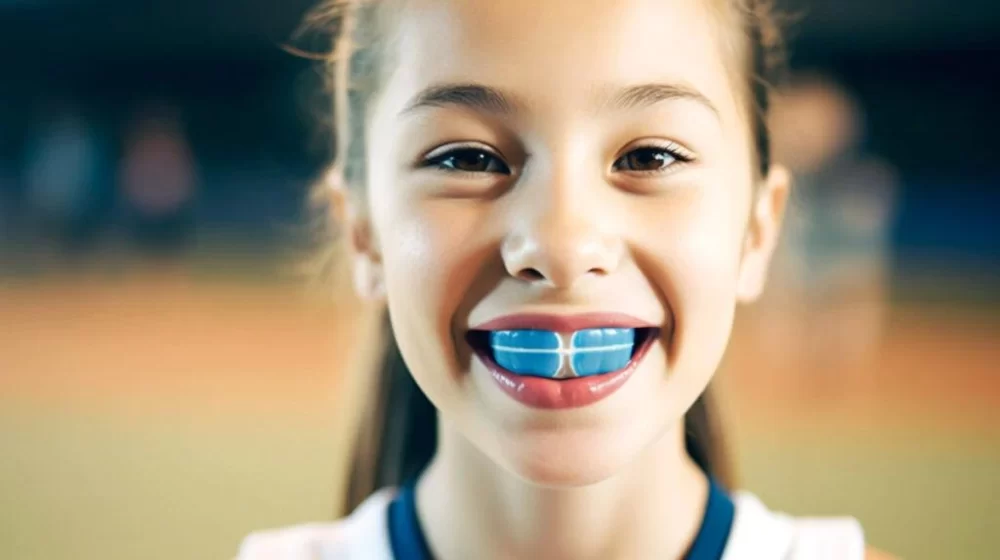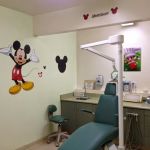
Tips for Protecting Your Teeth While Playing Sports
As an avid athlete, I’ve come to realize that protecting my teeth during sports is just as important as warming up or stretching. Growing up, I had always been told to wear a helmet for safety, but no one ever emphasized the need to protect my teeth while playing contact sports. That all changed when I had a dental injury during a high school soccer match. A stray elbow to the face caused a cracked tooth, and I learned the hard way that even in the most fun moments, protecting your teeth should be a priority.
1. Wear a Mouthguard – The Ultimate Defense
It didn’t take long for me to realize that mouthguards are a game changer. They act as a cushion to absorb the impact of any blow to the face, which can reduce the risk of broken teeth and serious oral injuries. The first time I wore one during a basketball game, I felt an immediate difference. It was comfortable, and most importantly, it gave me peace of mind knowing my teeth were protected. Whether you’re playing football, basketball, hockey, or any other contact sport, a mouthguard is a must-have. I recommend a custom-fitted mouthguard, as it’s the most effective in terms of comfort and protection. Over-the-counter mouthguards are also good, but custom ones are tailored to fit your mouth perfectly, providing better security.
2. Always Opt for a High-Quality Mouthguard
Not all mouthguards are created equal. When I first started using one, I didn’t pay much attention to the quality. I simply grabbed the cheapest option I could find at the sporting goods store. That was a mistake. A poorly fitting mouthguard can be uncomfortable and ineffective. I quickly learned that investing in a high-quality, well-fitting mouthguard made all the difference. There are several types, including boil-and-bite options and custom-fit ones made by dental professionals. In my experience, the custom-fit ones were worth every penny. They not only protected my teeth but also ensured I could speak and breathe comfortably during intense games.
3. Protect Your Teeth in Non-Contact Sports
While contact sports like football and hockey are obvious candidates for mouthguard use, I was surprised to learn that non-contact sports can also pose a risk to your teeth. I once participated in a competitive volleyball match where a hard spike sent the ball straight into my face, and I could feel my teeth vibrating from the impact. Since then, I’ve always worn a mouthguard during activities like volleyball, racquetball, and even skateboarding. The truth is, dental injuries don’t discriminate based on the sport you play – they can happen anytime, anywhere. A mouthguard is a small investment that could save you from costly dental bills and long-term damage.
4. Be Mindful of Your Diet and Oral Hygiene
It’s not just about protection on the field – your teeth’s health off the field plays a major role in how well they withstand impacts during sports. I found that keeping my teeth strong with good oral hygiene and a balanced diet helped me avoid additional damage. Foods high in calcium and vitamin D are essential for strong teeth and bones. Also, brushing and flossing regularly ensure that my teeth are in optimal shape for impact. I make sure to brush my teeth twice a day and use fluoride toothpaste, as it strengthens the enamel. I also avoid sugary snacks that can weaken teeth and increase the risk of cavities.
5. Maintain Regular Dental Checkups
Another step I took after my injury was scheduling more regular dental checkups. A dentist can spot any underlying issues that may weaken your teeth, making them more susceptible to damage during sports. After my experience, I started visiting my dentist every six months, and I can tell you it has made a huge difference. During these visits, my dentist checks the strength of my enamel, looks for any cracks or early signs of tooth wear, and provides tips on how to keep my teeth in top condition. Regular cleanings and exams not only keep your mouth fresh but also help prevent serious issues down the line.
6. Avoid Using Teeth as Tools
One of the habits I’ve had to work on is using my teeth for things other than chewing. It's tempting to open packages or bottles with your teeth, but this can lead to fractures, chips, or even complete tooth loss. While this might seem unrelated to sports, I learned that every little habit plays a role in the overall health of your teeth. Whether you’re opening a bag of chips or biting down on a hard object while playing, these actions can slowly wear down your enamel. Now, I always use proper tools for opening things, which has saved my teeth from unnecessary stress.
7. Protect Your Teeth While Wearing Sports Equipment
If you’re playing sports like football or hockey, the use of helmets and face shields is a given, but I’ve found that there are additional pieces of equipment that help protect your teeth. For example, in some sports, a face mask or a protective guard that shields the jaw can offer extra protection. While it may not be necessary for every sport, these types of safety measures are invaluable in high-risk activities. I remember the first time I played hockey with a full face shield – the extra protection gave me a lot of confidence and allowed me to focus on the game rather than worrying about my teeth.
8. Know the Signs of Dental Injury
Lastly, I’ve learned to recognize the signs of a dental injury so I can get immediate treatment if something goes wrong. If you experience pain, swelling, or loose teeth after a hit to the face, it’s essential to see a dentist right away. Even if the injury doesn’t seem severe at first, it’s better to be safe than sorry. I’ve had minor injuries in the past, and my dentist was able to address them before they became bigger issues. Early intervention is key to preventing long-term damage.
Protecting your teeth while playing sports might not always seem like a priority, but trust me, it’s one of the best decisions I’ve made. Whether you’re an athlete or just someone who enjoys a weekend game, it’s crucial to take the necessary steps to ensure that your teeth stay safe. A mouthguard, proper care, and regular dental visits will help you enjoy your favorite sports without the risk of permanent damage. Take it from someone who’s learned through experience – your smile is worth the protection!







 Dental Smiles of West Chicago4.0 (124 review)
Dental Smiles of West Chicago4.0 (124 review) West Covina Dental Group and Orthodontics4.0 (274 review)
West Covina Dental Group and Orthodontics4.0 (274 review) Dr. Allen R. Baker, DMD - San Fernando Dental Care4.0 (2 review)
Dr. Allen R. Baker, DMD - San Fernando Dental Care4.0 (2 review) Dr. Albert R. Arcand, DMD4.0 (22 review)
Dr. Albert R. Arcand, DMD4.0 (22 review) Schnierow Dental Care3.0 (177 review)
Schnierow Dental Care3.0 (177 review) Bright Now! Dental & Orthodontics4.0 (630 review)
Bright Now! Dental & Orthodontics4.0 (630 review) The Importance of Oral Health Education During Pregnancy for a Healthy Pregnancy
The Importance of Oral Health Education During Pregnancy for a Healthy Pregnancy Best Tips for Brushing Your Teeth Properly for Healthy Gums: Essential Techniques for Oral Health
Best Tips for Brushing Your Teeth Properly for Healthy Gums: Essential Techniques for Oral Health Why Skipping Dental Checkups Can Lead to Bigger Oral Health Problems
Why Skipping Dental Checkups Can Lead to Bigger Oral Health Problems Advantages of Porcelain Dental Restorations
Advantages of Porcelain Dental Restorations How Can Diabetes Cause Tooth and Gum Problems? Preventing and Managing Oral Health Issues
How Can Diabetes Cause Tooth and Gum Problems? Preventing and Managing Oral Health Issues Healthy Habits for Promoting Good Oral Health and Hygiene: Tips for a Healthy Smile
Healthy Habits for Promoting Good Oral Health and Hygiene: Tips for a Healthy Smile